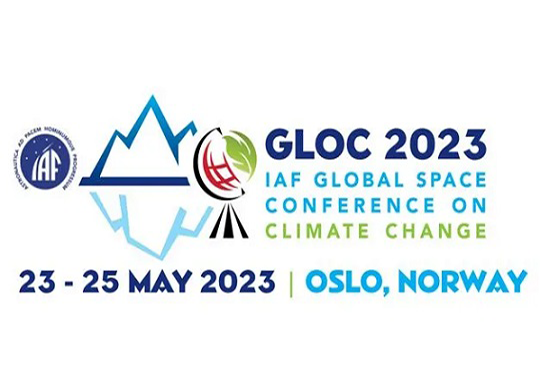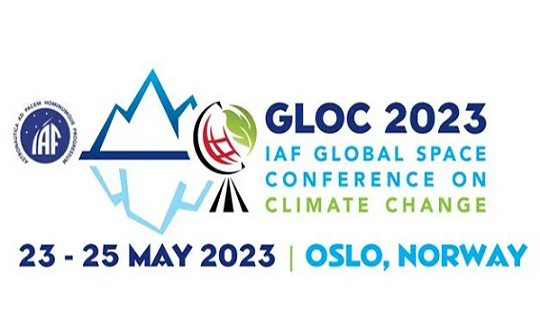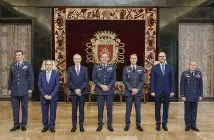
The IAF Global Space Conference on Climate Change – GLOC 2023 took place this week, from 23 – 25 May in the city of Oslo, Norway. The organizer, the International Astronautical Federation – IAF, together with the host organization, the Norwegian Space Agency – NOSA, welcomed 600 delegates in-person from 45 countries, and nearly 4000 from remote.
Fighting climate change is now more than ever in the mind of everyone, including the global space community. Global warming and climate change present highly complex and unavoidable problems that threaten the well-being of billions of people on Earth.
GLOC 2023 kept its promise by triggering an informative and inspirational dialogue between senior representatives of the major space agencies, industries, academia and NGOs, as well as representatives of non-space sectors involved in the climate change debate.
The conference started with an impactful opening ceremony where Norwegian Minister of Climate and Environment, Espen Barth Eide, tackled the subject by affirming that “we are deep into the climate crisis, we can only make it less bad. We need space to help us face this crisis”.
Minister Eide admitted that “governments have not cared enough about climate change but, thankfully, care much more now.” The importance of transforming UN goals into concrete actions was noted and space was presented as an efficient toolbox to fight climate change. IAF President, Clay Mowry, asserted that “we would not understand the impact of climate change without space”. GLOC 2023 is one of the corner stones of the IAF Sustainability agenda, with the aim of fostering a future where space-based applications and services help improve life for all on planet Earth.
At GLOC 2023, major space agencies reported on the applications they develop to collect data and monitor Earth.
The French Space Agency (CNES) and the National Aeronautics and Space Administration (NASA) mentioned the recent launch of the Surface Water and Ocean Topography (SWOT) satellite which will make the first global survey of Earth’s surface water.
The European Space Agency (ESA) Director General, Josef Aschbacher, referred to the European Copernicus Programme as “one of the most powerful Earth observation systems in the world created to measure the atmosphere, the oceans, the land surface, the icecaps and to understand climate”.
Koji Terada, Vice President of the Japan Aerospace Exploration Agency (JAXA) highlighted the Sentinel Asia created to showcase the value and impact of Earth observation technologies for disaster management support in the Asia-Pacific region.
GLOC 2023 also emphasized the principle of measuring globally and acting locally. Many panels also highlighted the need for the space community to more efficiently communicate to the media and to the general public their concrete achievements in contributing to climate action.
“The way we talk about space-related data is boring. It is about visualisation. It is for instance about showing people a graphic depiction of what sea level rise looks like. What it looked like in the past 50 years and what those projections look like for the future. That is how you educate people”, said Susie Perez Quinn, NASA Chief of Staff. While space agencies and industries, as well as several non-space organizations were well represented at GLOC 2023, there was a clear lack of political decision-makers. As stated by the Special Advisor to the IAF President on Parliamentarian and Ministerial Relations, Dominique Tilmans, “space is too complicated for politicians, we need to make it more understandable”.
As a final call to action to the entire space community, NOSA Director General Christian Hauglie-Hanssen stated that “we need to do more, we need to take concrete actions.”





